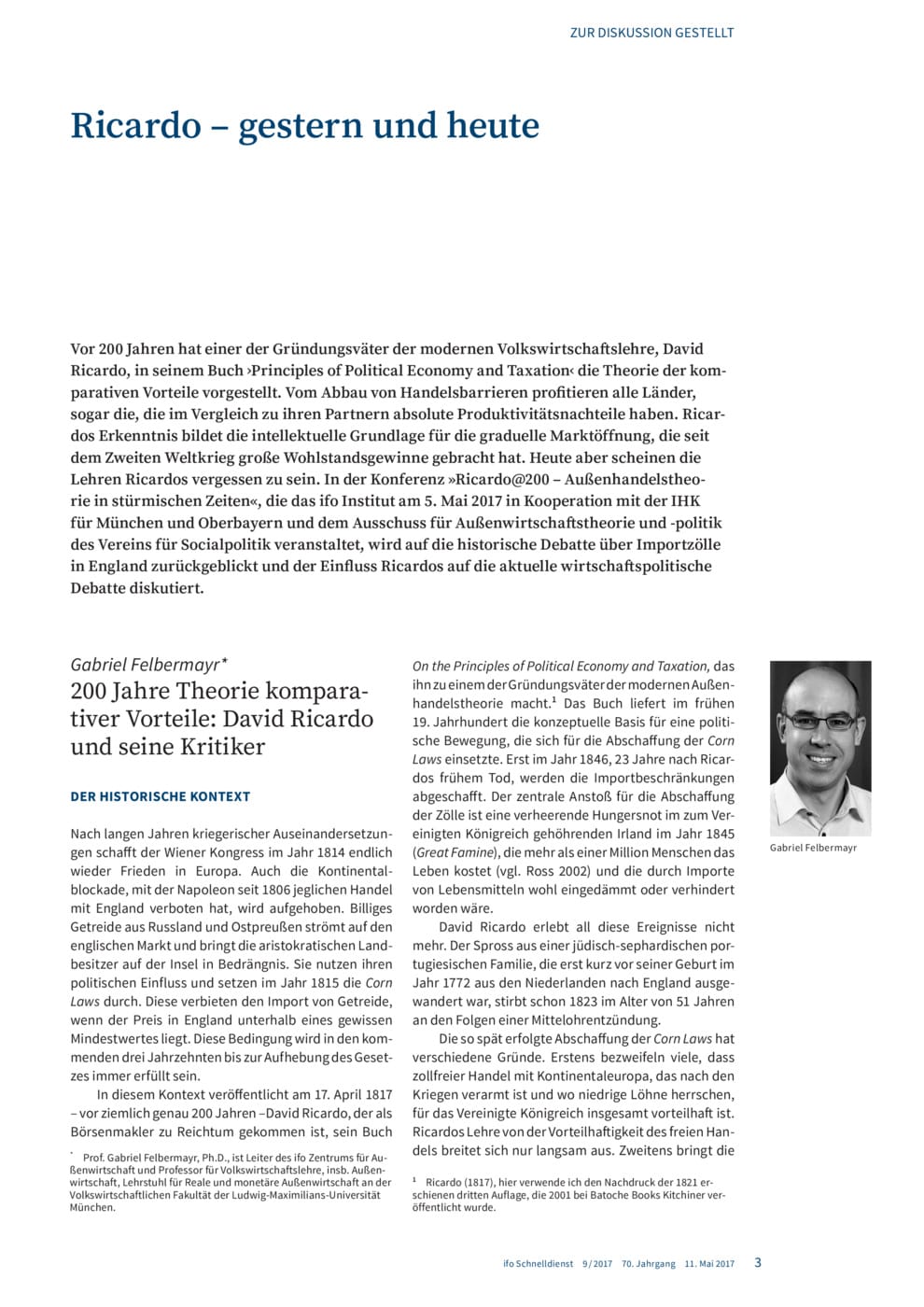Ricardo – Yesterday and Today
ifo Institut, München, 2017
ifo Schnelldienst, 2017, 70, Nr. 09, 03-18

200 years ago, one of the founding fathers of modern economics, David Ricardo, presented the theory of comparative advantages in his book Principles of Political Economy and Taxation. All countries, even those with productivity disadvantages compared to their partners, benefit from the reduction of trade barriers. Ricardo’s insight provided the intellectual basis for the gradual opening of markets, which has brought great prosperity since the Second World War. Today, however, many seem to have forgotten Ricardo’s lessons. Gabriel Felbermayr, Ifo Institute and Ludwig Maximilian University of Munich, points out that the global availability of technologies increasingly strengthens the classical Ricardian motive for trade – specialisation in sectors where comparative technological productivity advantages are present. Other drivers of trade are more important: product differentiation and the exploitation of economies of scale in production. But the rapid diffusion of technological progress does not mean that production costs are converging. As long as countries differ in the availability of well-trained workers, in the quality of their institutions and in their geographical and climatic conditions, relative and absolute differences will continue to exist. Sufficient scope remains for economic gains from the exploitation of specialisation advantages. Benjamin Jung, University of Hohenheim, and Wilhelm Kohler, University of Tübingen, argue that in addition to the fundamental concept of international trade according to comparative advantages and the idea of gains from trade, David Ricardo made another great contribution to the history of economics: the so-called Ricardian system, which he had developed in his Essay on Profits published in 1815 and which deals with income distribution and growth. Philipp Harms, University of Mainz, and Jakob Schwab, German Institute for Development Policy, Bonn, presents the results of an international survey on economic globalisation conducted in two waves, 2003 and 2013. The differences in the rejection of free trade and multinational companies by potential “globalization losers” and potential “globalization winners” seem to have declined rather than increased between 2003 and 2013.